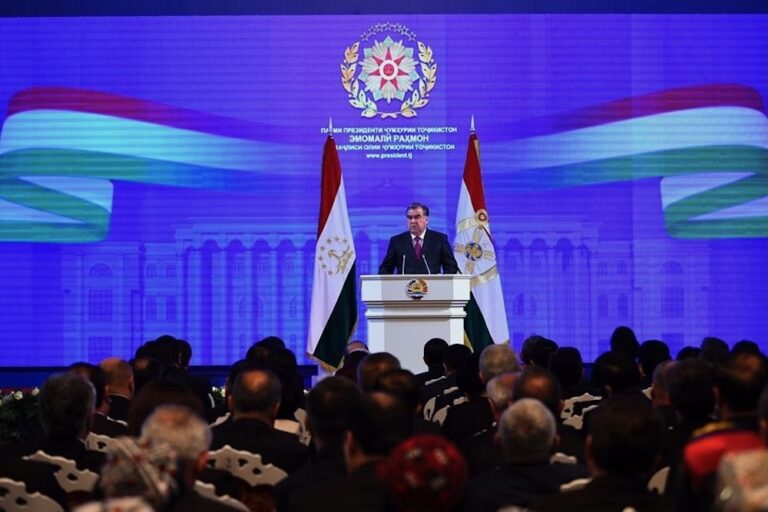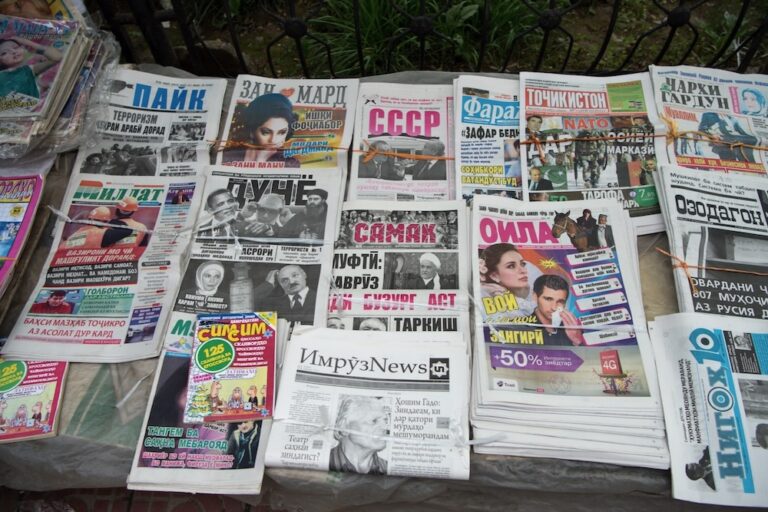The state telecom chief blamed the problem on technical problems, but the local press obtained a copy of a government order to block access to the websites.
(RSF/IFEX) – 8 March 2012 – Reporters Without Borders strongly condemns the sudden escalation in cyber-censorship by the Tajik government. Since 2 March, a dozen local Internet Service Providers have received orders to block access to the social network Facebook and four independent news websites.
“A year and a half after the last episode of this kind, the Tajik authorities have gone back to large-scale cyber-censorship,” Reporters Without Borders said. “This major blocking initiative is as inacceptable as it is absurd.”
For the most part, it has been impossible to access Facebook, the Russian geopolitical analysis site “Polyarnaya Zvezda” (“Polar Star”), the Tajik exile political news site Tjknews.com, the Uzbek news site Maxala.org and the Central Asian news site Centrasia.ru since the morning of 3 March.
State telecommunications chief Beg Zukhurov denied on 5 March that any orders had been given to ISPs and blamed “technical problems.” But the local press obtained a copy of a letter signed by Zukhurov’s deputy which was received by the main ISPs and which told them to “block access” to these five sites “in connection with preventive technical work (LINK).”
According to the information obtained by Reporters Without Borders, “Poliarnaya Zvezda” was the first site to be blocked, on the evening of 2 March. This tends to support the theory of several commentators that the cyber-censorship was prompted by an article on this site entitled “Tajikistan on the eve of a revolution” that was very critical of President Emomali Rakhmon’s government.
It is thought that the other sites were blocked when they, too, posted the offending article. Central Asia’s leading Russian-language news website, Fergananews.com, has meanwhile been surprised to learn that it has also been partially blocked in Tajikistan for several days.
The blocking of Facebook is especially absurd as it has only 35,000 users, far fewer than the Russian-language social networks Moy Mir and Vkontakte, which have 150,000 and 100,000 respectively.
The ruling People’s Democratic Party meanwhile announced yesterday that it plans to launch an alternative social network. The plan is reminiscent of the Uzbek government’s recent creation of Muloqot.uz, a national social network that is monitored and expurgated.
Generalized content filtering and attempts to move Internet users to “national” social networks are spreading alarmingly in Central Asia. So is the idea that the Internet should be carved up into national segments that are subject to locally-determined norms in the name of “security” and “local values.”
Tajikistan submitted a proposal for an “Internet code of good conduct” to the United Nations on 23 September. Supported by China, Russia, and Uzbekistan, it basically aims to subject the free flow of information to local standards and government imperatives.


